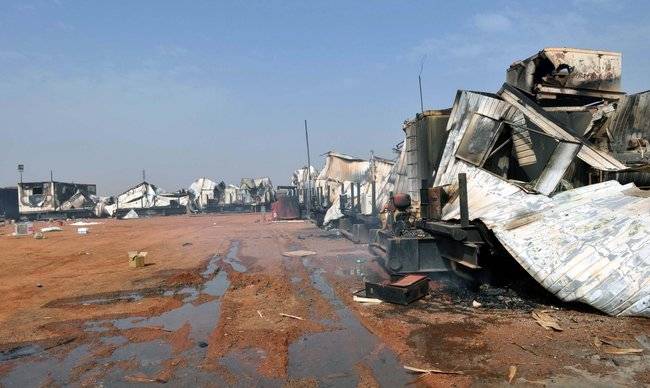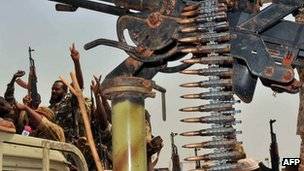KHARTOUM, Sudan After a brief, halting step toward reconciliation, military clashes along the long, disputed border between Sudan and newly independent South Sudan have stirred fears of a renewed conflict between the two sides.
Recent cross-border attacks and continued aerial bombing represent a dangerous escalation of an already tense situation, a statement from the office of the European Unions foreign policy chief, Catherine Ashton, said on Wednesday. The statement followed similar expressions of concern this week by the United States, the United Nations and the African Union.
On Tuesday, South Sudanese officials accused Sudan of carrying out airstrikes over their territory. Barnaba Benjamin, South Sudans minister of information, said, Sudanese planes flew 100 kilometers into our airspace and bombed oil fields in Unity State.
In a counterattack, South Sudanese forces claimed control of the oil-producing town of Heglig in Sudan, which the South says is a disputed territory. Sudanese forces, however, said they had retaken Heglig.
Our armed forces were able to repel the aggressors and prevent them from achieving their goal of occupying the area of Heglig, said a statement read by a Sudanese Army spokesman, Al-Sawarmi Khalid, who rejected the Souths assertion that Heglig was among the disputed areas.
The back-and-forth came one day after both sides exchanged allegations of carrying out attacks on each others territory.
In July, South Sudan seceded from Sudan, taking with it nearly 75 percent of the countrys oil production. But the facilities to process, refine and export the oil are north in Sudan. Both sides have failed to agree on oil production fees, or on issues like the demarcation of borders and the status of their citizens living on the other side. Both governments also accuse each other of supporting rebel groups on their soil.
There appeared to be a breakthrough last week when South Sudans president, Salva Kiir Mayardit, sent a delegation to Khartoum to invite Sudans president, Omar Hassan al-Bashir, to South Sudans capital, Juba, for a summit meeting next Tuesday. But the military clashes prompted Sudan to call off the meeting.







